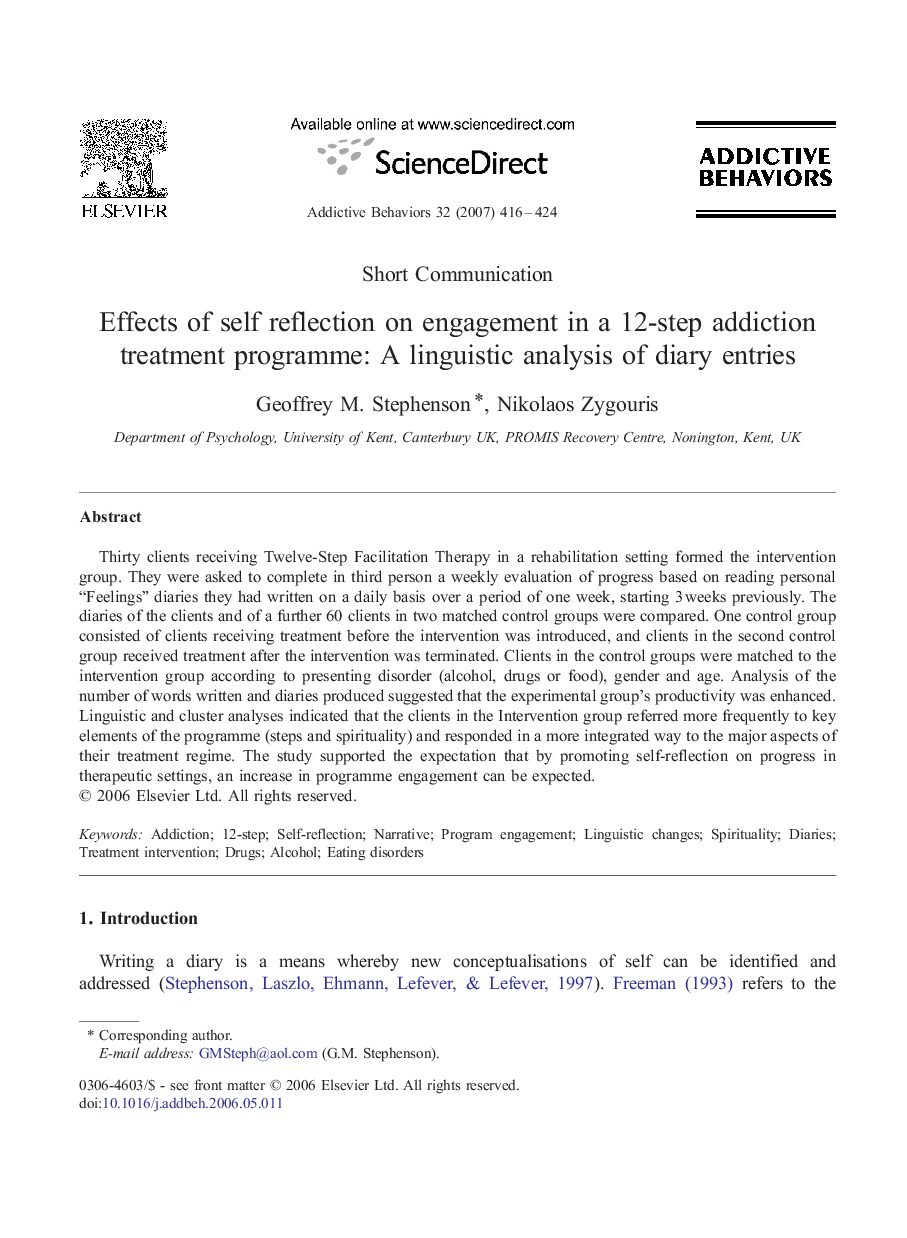| Article ID | Journal | Published Year | Pages | File Type |
|---|---|---|---|---|
| 900522 | Addictive Behaviors | 2007 | 9 Pages |
Thirty clients receiving Twelve-Step Facilitation Therapy in a rehabilitation setting formed the intervention group. They were asked to complete in third person a weekly evaluation of progress based on reading personal “Feelings” diaries they had written on a daily basis over a period of one week, starting 3 weeks previously. The diaries of the clients and of a further 60 clients in two matched control groups were compared. One control group consisted of clients receiving treatment before the intervention was introduced, and clients in the second control group received treatment after the intervention was terminated. Clients in the control groups were matched to the intervention group according to presenting disorder (alcohol, drugs or food), gender and age. Analysis of the number of words written and diaries produced suggested that the experimental group's productivity was enhanced. Linguistic and cluster analyses indicated that the clients in the Intervention group referred more frequently to key elements of the programme (steps and spirituality) and responded in a more integrated way to the major aspects of their treatment regime. The study supported the expectation that by promoting self-reflection on progress in therapeutic settings, an increase in programme engagement can be expected.
